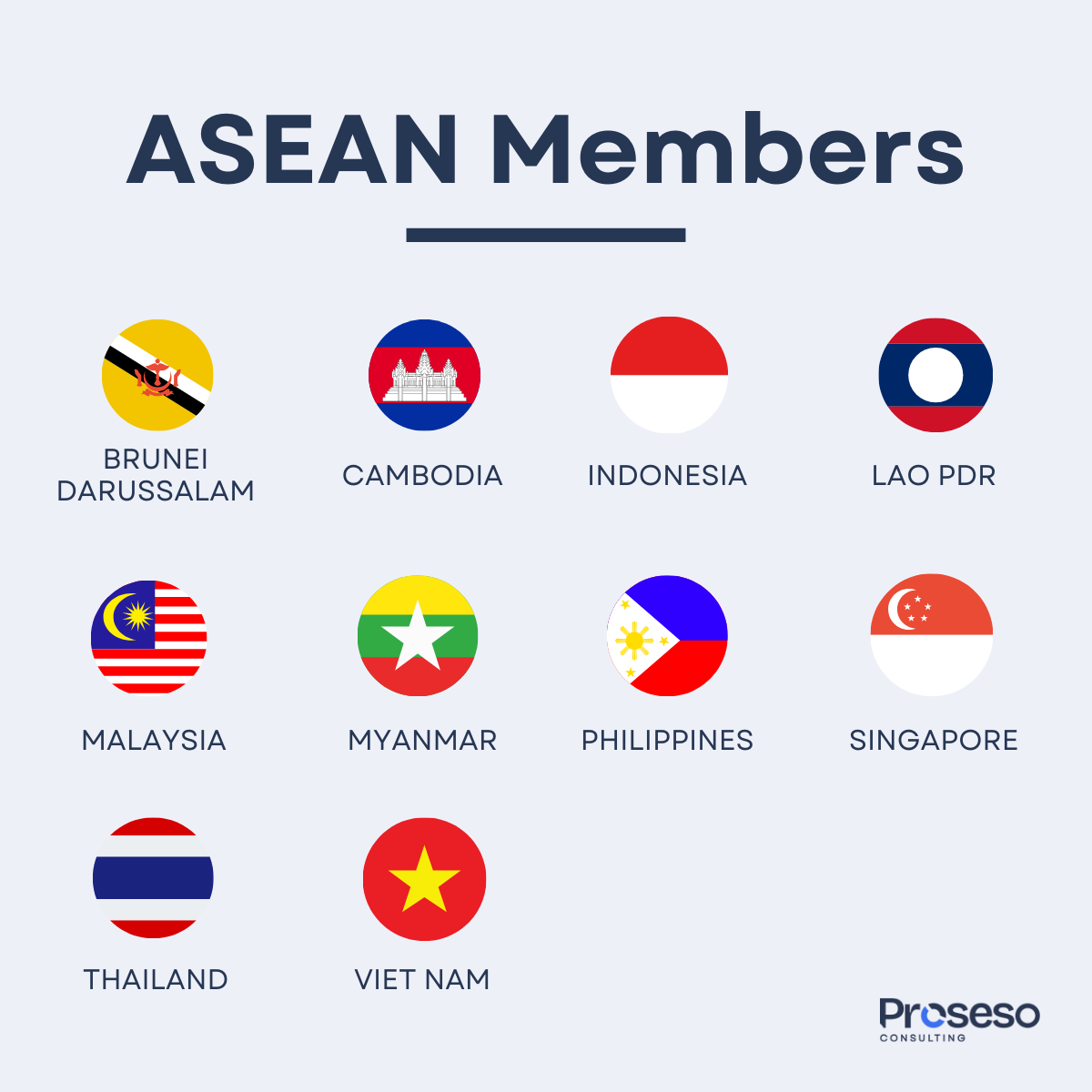Southeast Asia offers vast growth opportunities for entrepreneurs, with a young, thriving consumer base, strategic location, and the regional integration process of the ASEAN countries. However, expanding into this region requires more than just ambition; it demands an understanding of diverse cultural, regulatory, and operational landscapes.
This article explores essential strategies for establishing a business in Southeast Asia, with a focus on using business hubs like Singapore or Hong Kong as headquarters and managing subsidiaries in countries such as the Philippines, Indonesia, or Thailand.
Market Understanding and Cultural Adaptation
The economic potential of Southeast Asia is bolstered by ASEAN’s commitment to regional integration, which has strengthened trade ties across member nations. With an expanding middle class and robust growth rates, the region offers a unified yet diverse market, attracting substantial foreign investment. 
Expanding into Southeast Asia involves navigating distinct regulations around foreign ownership, taxes, and labor laws in each ASEAN country. This requires local expertise to help businesses understand country-specific regulations and mitigate risks effectively.
Cultural adaptation is equally critical. ASEAN countries each have unique business customs, and establishing long-term relationships is essential for success. In markets like the Philippines and Indonesia for example, where personal networks can influence business outcomes, building trust through cultural understanding is key.
Language can be another challenge, so hiring bilingual staff or partnering with local experts can smoothen communication and strengthen local connections.
Financial and Operational Considerations
Headquarter Setup in Singapore or Hong Kong
Major hubs such as Singapore and Hong Kong are advantageous starting points, offering infrastructure, stable legal systems, and established financial markets.
Singapore alone boasts a GDP of approximately USD 500 billion, underscoring its economic significance, while ASEAN economies such as the Philippines, Vietnam, and Indonesia have shown rapid GDP growth rates of around 6% annually, highlighting the region’s dynamic expansion.
Establishing a headquarters in Singapore or in Hong Kong, provides companies with a strategic base to manage international contracts, intellectual property (IP), and fundraising initiatives, as well as to benefit from a favorable tax environment. Both locations are known for business-friendly environments and strong regulatory frameworks.
However, managing HQ finances often involves a certain level of complexity as well as understanding intricate tax setups and compliance requirements:
An important consideration is to structure transactions with arm's length pricing to ensure inter-company dealings comply with international tax standards. Working with advisors familiar with these standards can help maintain compliance and avoid penalties.
Inter-company transactions and their related potential taxation including withholding tax implications across the region shall also be understood.
Managing foreign currency transactions is another consideration, particularly for funds moving between headquarters and subsidiaries in volatile currency markets.
Using accounting tools and consolidating financial data from multiple countries and entities allows the HQ to gain a real-time view of its financials across subsidiaries.
Subsidiary Setup in ASEAN Countries like the Philippines, Indonesia, or Thailand
Specialized accounting tools that adapt to local regulatory standards can automate some tasks, reducing the risk of errors and ensuring ongoing compliance.
Engaging local experts can be invaluable for adapting accounting practices to fit local standards. Providers with regional experience can guide companies through compliance, ensuring operational efficiency and allowing businesses to focus on growth.
Market Entry and Growth Strategies
Selecting the right entry strategy—whether through joint ventures, partnerships, or a wholly-owned subsidiary—depends on business objectives, resources, local market knowledge, and specific foreign ownership restrictions.
Conducting thorough market research is vital for understanding consumer preferences, competitive dynamics, and potential risks. Businesses will also need to properly identify their target demographics, determine pricing models, and choose effective distribution channels.
Tailoring products and services to local tastes is essential to gaining market share. Localization efforts, from language adjustments to product modifications, help build customer trust and foster brand loyalty in Southeast Asia.
Expand Smart in Southeast Asia with the Right Strategy
Expanding into Southeast Asia offers lucrative opportunities but requires a well-informed approach to address the region’s cultural and regulatory complexities. Entrepreneurs seeking expert guidance can benefit from Proseso Consulting’s extensive experience managing finances, ensuring compliance, and optimizing operations.
Whether establishing a headquarters in Singapore or launching a subsidiary in the Philippines, Proseso Consulting provides the expertise to make expansion smooth and successful.
Proseso Consulting - Your Modern Finance Expert - For Seamless Growth in the Philippines and Singapore
For more information on our Services or if you have any questions, you may contact the team at contact@proseso-consulting.com.
We are a team of dedicated accountants, consultants, and business support professionals offering modern finance and administrative solutions.
With our deep local expertise and modern solutions, we enable businesses to leverage the region’s dynamic opportunities and scale with seamless, profitable growth.